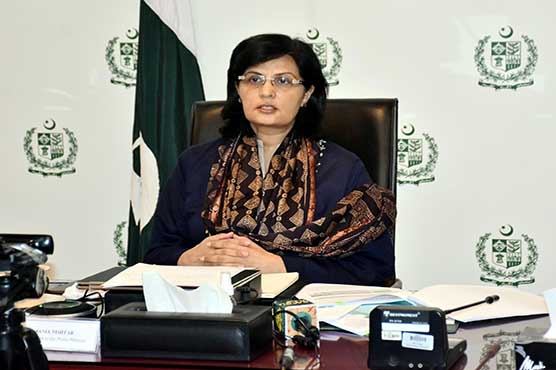Scope of Ehsaas Emergency Cash program to be expanded: Dr Nishtar

She mentioned that COVID-19 negatively impacted around 160 million people in Pakistan
ISLAMABAD (Web Desk) – Special Assistant to the Prime Minister on Social Protection and Poverty Alleviation, Dr. Sania Nishtar Tuesday disclosed that the scope of the historic Ehsaas Emergency Cash Program would be expanded for poverty eradication.
She was addressing as a panellist during the World Bank Group-IMF Annual Meeting titled Protecting South Asia s Poor and Vulnerable Against COVID-19 and Beyond .
The South Asian event focused on the social protection programs as a cornerstone of relief and longer-term recovery.
This virtual event was a direct contribution to the central theme of the Annual Meetings of Supporting a Resilient Recovery: building resilience, improving inclusion, promoting economic growth, and sustaining businesses and jobs .
Sharing the scale and ambition of Ehsaas Emergency Cash, Dr. Nishtar said, "The impact of Ehsaas Emergency Cash on ground which meant getting cash into the hands of millions of families at a time of extreme uncertainty was truly humbling".
She mentioned that COVID-19 negatively impacted around 160 million people in Pakistan in response to which Pakistan s government delivered cash assistance to 15 million families in distress.
She elaborated that digital capabilities established in 2019 as part of Ehsaas, were adapted to deliver Ehsaas Emergency Cash, in particular, a new biometric payment system, a demand side SMS based request seeking platform and a new wealth-profiling big data analytics mechanism.
Dr. Nishtar said that many challenges were encountered during the disbursements of cash assistance to the deserving families as Ehsaas Emergency Cash was rolled out with lockdowns in effect, public transport suspended, and risk of disease spread looming.
She also highlighted the additional challenges related to issues of logistics, connectivity, liquidity, cyberattacks, biometric failures, and limitations of data-driven messaging.
A whole of government approach and real time evaluation helped to successfully address these challenges with speed.
Dr.Nishtar informed that fiscal measures were adopted to incentivize retailers to work in a difficult environment; communication measures were taken to address low financial and digital literacy.
She was of the view that the COVID-19 crisis had hit South Asia hard, deepening poverty, exacerbating inequality, and creating new poor.
She said South Asia was expected to have the largest increase in the number of extreme poor due to COVID, and this discussion with policymakers from South Asia as well as practitioners, scholars and international experts was timely and urgent as countries are developing plans for economic recovery and building the resilience of households against current and future shocks.
Dr. Nishtar was joined by Special Economic Advisor to the PM of Nepal, Executive Director of BRAC Bangladesh, Professor of Cornell University and Indian Minister for Textiles and Minister for Women and Child Development at a high level event.
The panel highlighted the relief efforts in the South Asia region and shared views on how social protection could be designed to reach all and support a resilient recovery and inclusive long-term growth through an engaging discussion with policymakers, practitioners, scholars and international experts.

